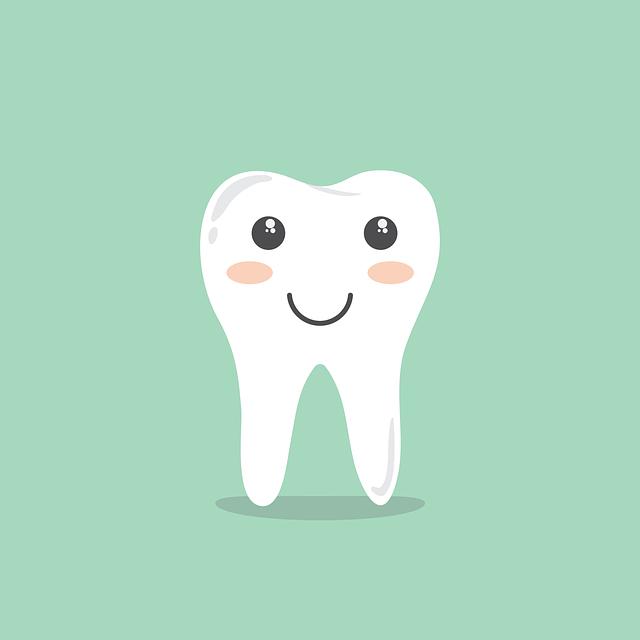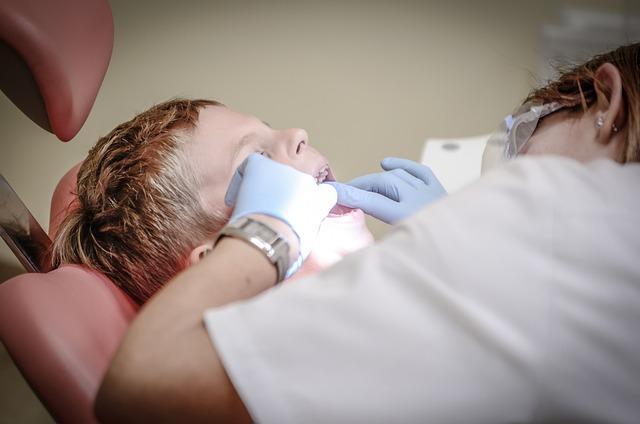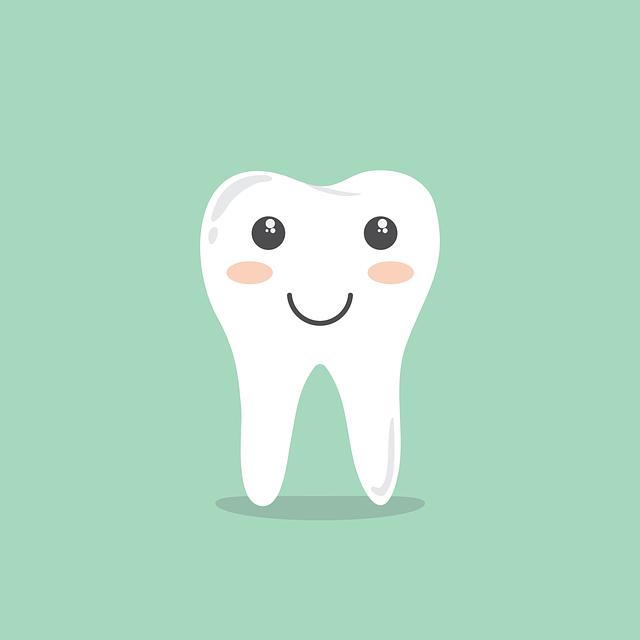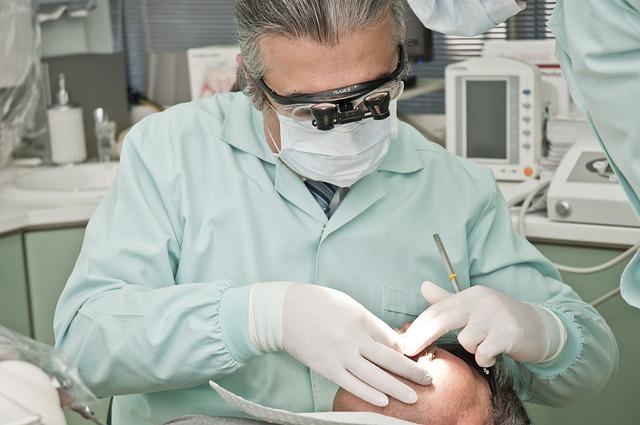When to Gargle Saltwater After Tooth Extraction? Dental Dos and Don’ts
Are you one of the many individuals who have recently undergone a tooth extraction? If so, you may be wondering about the best practices for post-operative care. One common question that arises is when to gargle saltwater after tooth extraction. In this article, we will delve into the dental dos and don’ts surrounding this topic, equipping you with the knowledge you need to ensure a smooth recovery. So, let’s dive in and explore the optimal time and technique for gargling saltwater, as well as other essential tips for post-extraction care.
1. Understanding the Importance of Gargling Saltwater after Tooth Extraction: A Crucial Step for Optimal Healing
Gargling saltwater after tooth extraction is a crucial and often overlooked step in the healing process. It not only helps to cleanse the area but also promotes optimal healing. Here are a few reasons why this simple practice is so important:
- Reduced risk of infection: Saltwater has natural antiseptic properties that can help kill bacteria and prevent infection in the extraction site. Gargling with saltwater can help keep the area clean and minimize the risk of complications.
- Alleviates discomfort and swelling: After a tooth extraction, it is common to experience discomfort and swelling. Gargling saltwater can help reduce these symptoms by reducing inflammation and soothing the area.
- Promotes faster healing: Saltwater gargles can stimulate blood flow to the extraction site, which is essential for proper healing. The increased blood flow brings vital nutrients and oxygen to the area, promoting faster healing and tissue regeneration.
Remember to always use warm water and dissolve a teaspoon of salt in a cup before gargling. Take care to gently swish the saltwater around the mouth without applying pressure to the extraction site. Repeat this process a few times a day for a few days following the tooth extraction, but always follow your dentist’s specific instructions for the best results.

2. The Ideal Timing for Gargling Saltwater after Tooth Extraction: Expert Recommendations
After a tooth extraction, it is crucial to follow the proper care instructions to ensure the healing process goes smoothly. One important aspect of post-extraction care is gargling with saltwater, as recommended by experts. However, the ideal timing for this practice can vary depending on the individual and the specific circumstances of the extraction. Here are some expert recommendations to help determine the best timing for gargling saltwater:
- Wait at least 24 hours: It is generally advised to wait at least 24 hours after a tooth extraction before gargling saltwater. This allows the blood clot to form and stabilize, reducing the risk of complications such as dry socket.
- Follow your dentist’s instructions: Every tooth extraction is unique, and your dentist may provide specific guidelines regarding when to start saltwater gargling. It is essential to follow these instructions closely to ensure optimal healing.
- Consider the severity of the extraction: If the extraction was a simple procedure without any complications, you may be able to start gargling saltwater sooner. However, for more complex extractions or if you experienced any difficulties during the procedure, it is best to wait for a slightly longer duration.
Remember, it is always advisable to consult with your dentist before starting any post-extraction care routine. They will be able to provide personalized recommendations based on your specific situation and ensure that you are taking the necessary steps for a successful recovery.

3. Dental Dos: Step-by-Step Guide for Gargling Saltwater after Tooth Extraction
After a tooth extraction, proper care is crucial to promote healing and prevent complications. Gargling saltwater is a simple yet effective technique that can aid in the recovery process. To ensure you’re doing it correctly, follow this step-by-step guide:
- Prepare the saltwater solution: Start by dissolving half a teaspoon of salt in 8 ounces of warm water. Stir until the salt is completely dissolved.
- Gently swish the solution: Take a mouthful of the saltwater and swish it gently around the mouth for about 30 seconds. Try not to create too much pressure or forcefully spit out the solution.
- Spit out the solution: After swishing, spit out the saltwater into the sink. Be careful not to swallow it, as it may cause discomfort or nausea.
- Repeat the process: Repeat the gargling process 2-3 times a day, especially after meals and before bed. This will help keep the extraction site clean and reduce the risk of infection.
Gargling saltwater can provide relief by reducing swelling, soothing discomfort, and promoting healing. However, if you experience severe pain, excessive bleeding, or any other concerning symptoms, it’s important to contact your dentist immediately.

4. The Science Behind Gargling Saltwater: How It Promotes Healing and Reduces Infection Risk
Gargling saltwater has long been recommended as a home remedy for sore throats and dental issues. But have you ever wondered why this simple solution is so effective? Let’s dive into the science behind gargling saltwater and discover how it promotes healing and reduces the risk of infection.
When you gargle saltwater, the saline solution works in several ways to provide relief and support the healing process:
- Reduces inflammation: Saltwater helps to reduce inflammation in the throat and mouth by drawing out excess fluids and reducing swelling. This can provide temporary relief from pain and discomfort.
- Flushes out bacteria and viruses: The high salt concentration in the gargling solution creates an osmotic effect, which can help to kill or inhibit the growth of harmful bacteria and viruses. It also helps to dislodge and remove any debris or mucus that may be present.
- Moisturizes and soothes: Gargling saltwater can help to moisturize and soothe dry, irritated tissues in the throat and mouth. This can alleviate symptoms such as dryness, itchiness, and scratchiness.
Overall, the science behind gargling saltwater shows that it can be a simple yet effective way to promote healing and reduce the risk of infection. However, it’s important to note that while saltwater gargles can provide temporary relief, they should not replace medical treatment. If symptoms persist or worsen, it’s always best to consult a healthcare professional.
5. Common Misconceptions: Debunking Myths about Gargling Saltwater after Tooth Extraction
There are several common misconceptions surrounding the practice of gargling saltwater after a tooth extraction. Let’s debunk these myths and set the record straight:
Myth 1: Gargling saltwater can replace proper oral hygiene.
This is not true. While gargling saltwater can provide temporary relief and help prevent infection after a tooth extraction, it should not be considered a substitute for regular oral hygiene practices. It is crucial to continue brushing your teeth twice a day, flossing daily, and using mouthwash as recommended by your dentist.
Myth 2: Saltwater can speed up the healing process.
While gargling saltwater can aid in keeping the extraction site clean, it does not have any miraculous healing properties. Healing time after a tooth extraction depends on various factors, including the complexity of the extraction, your overall health, and how well you follow post-operative instructions. It is best to follow your dentist’s recommendations for a speedy and successful recovery.
Myth 3: Gargling saltwater can help with all post-extraction complications.
While saltwater rinses can help reduce inflammation and promote healing, they are not a cure-all solution for all post-extraction complications. If you experience severe pain, excessive bleeding, or any other concerning symptoms, it is important to contact your dentist immediately. They will be able to provide you with the appropriate treatment and guidance based on your specific situation.
6. The Don’ts of Gargling Saltwater after Tooth Extraction: Pitfalls to Avoid for a Smooth Recovery
While gargling saltwater after a tooth extraction can aid in the healing process, it is important to be aware of certain pitfalls that should be avoided to ensure a smooth recovery. By following these guidelines, you can minimize potential complications and promote faster healing:
- Don’t use excessive force: When gargling saltwater, it’s crucial to be gentle and avoid any vigorous swishing or spitting. This can disrupt the formation of blood clots, which are essential for the healing process.
- Don’t use hot water: Always use lukewarm water when preparing the saltwater solution. Hot water can cause discomfort and may even delay the healing process by increasing blood flow to the extraction site.
- Don’t skip the recommended frequency: It’s important to adhere to the recommended frequency of gargling saltwater as advised by your dentist or oral surgeon. Skipping or neglecting this step can hinder the cleansing and antimicrobial effects of the saltwater solution.
- Don’t swallow the mixture: While gargling, make sure to avoid swallowing the saltwater solution as it can cause dehydration and an upset stomach. Spit out the mixture gently after gargling.
- Don’t substitute saltwater with mouthwash: Although mouthwash may provide a refreshing sensation, it is not a substitute for saltwater. Mouthwash often contains alcohol and other additives that can irritate the extraction site and impede the healing process.
By avoiding these pitfalls, you can optimize the benefits of gargling saltwater after tooth extraction and ensure a smooth and speedy recovery. Remember to consult your dentist or oral surgeon if you have any specific concerns or questions regarding your post-extraction care.
7. Potential Side Effects and Risks of Gargling Saltwater: What Every Patient Should Know
Gargling saltwater is a common home remedy that many patients turn to when they have a sore throat or other throat-related issues. While this method can provide relief for some individuals, it is important to be aware of the potential side effects and risks associated with this practice.
1. Dryness: Gargling saltwater frequently may lead to dryness in the throat, as the salt can absorb moisture. It is advised to moisturize the throat with water or natural remedies to counteract this effect.
2. Increased blood pressure: Saltwater gargles can temporarily increase blood pressure due to the sodium content. If you have high blood pressure or are at risk, it is recommended to consult with a healthcare professional before attempting this remedy.
3. Irritation: In some cases, gargling saltwater can cause throat irritation, especially if the solution is too concentrated. It is crucial to follow the proper ratio of salt to water and avoid excessive gargling.
4. Electrolyte imbalance: Excessive use of saltwater gargles can disrupt the balance of electrolytes in the body. This is particularly important for individuals with certain health conditions or those on restricted diets.
5. Allergic reactions: Although rare, some individuals may have an allergic reaction to the saltwater solution. If you experience any unusual symptoms after gargling, such as swelling, difficulty breathing, or hives, seek immediate medical attention.
While gargling saltwater can be a helpful home remedy, it is essential to understand the potential side effects and risks. If you have any concerns or questions, it is advisable to consult with a healthcare professional before incorporating this practice into your routine.
8. Alternative Options to Gargling Saltwater: Exploring Additional Post-Extraction Mouthwash Choices
When it comes to post-extraction mouthwash choices, there are several alternatives to gargling saltwater that can be equally effective in promoting healing and maintaining oral hygiene. These options offer additional benefits and may be more suitable for individuals who prefer a different taste or have specific dental concerns.
1. Antiseptic Mouthwash: This type of mouthwash contains ingredients like chlorhexidine or cetylpyridinium chloride, which have powerful antimicrobial properties. Using an antiseptic mouthwash can help reduce the risk of infection and control bacteria in the mouth.
2. Natural Mouthwash: For those who prefer a more natural approach, there are mouthwashes made with herbal extracts like tea tree oil, peppermint, or eucalyptus. These ingredients have natural antiseptic properties and can provide a refreshing sensation while promoting healing.
3. Fluoride Mouthwash: If you are concerned about tooth decay or enamel protection, using a fluoride mouthwash can be a great choice. Fluoride strengthens the enamel, making it more resistant to acid attacks and reducing the risk of cavities.
It is important to consult with your dentist or oral surgeon before choosing an alternative mouthwash option to ensure it aligns with your specific needs and doesn’t interfere with the healing process. Remember, maintaining good oral hygiene is crucial after tooth extraction to promote proper healing and prevent complications.
9. Personalized Care: Consulting with Your Dentist for Specific Instructions on Gargling Saltwater
When it comes to maintaining good oral hygiene, sometimes simple remedies can go a long way. Gargling saltwater is one such effective technique that can provide relief from various dental issues. Consulting with your dentist for specific instructions on how to perform this technique can further enhance its benefits.
Your dentist is the best person to guide you on the appropriate concentration of saltwater solution to use for gargling. They will take into consideration your specific dental condition, such as gum disease, toothache, or mouth ulcers, and provide you with personalized instructions. This ensures that you are using the correct amount of salt and water, maximizing the therapeutic effects.
During your consultation, your dentist may also provide additional tips on how to gargle saltwater effectively. They may advise you to:
- Use warm water instead of cold or hot water to avoid sensitivity.
- Add half a teaspoon of salt to a cup of water for the ideal concentration.
- Swish the saltwater solution in your mouth for about 30 seconds.
- Spit out the solution and avoid swallowing it.
Remember, personalized care from your dentist ensures that you are following the correct procedure and getting the most out of this simple yet effective remedy. So, don’t hesitate to schedule an appointment and consult with your dentist for specific instructions on gargling saltwater.
10. When to Stop Gargling Saltwater: Signs that Indicate the Healing Process is Complete
Once you begin gargling saltwater to promote oral healing, it’s essential to know when to stop the treatment. While it’s generally recommended to continue this practice for a certain period, there are specific signs that indicate the healing process is complete, and you can discontinue gargling saltwater.
Here are some key indicators to watch out for:
- Reduced pain and discomfort: As the affected area heals, you should notice a significant decrease in pain and discomfort. If you no longer experience any pain or irritation, it’s a good sign that you can stop gargling saltwater.
- Decreased inflammation and swelling: Swelling and inflammation are common after an oral injury or infection. As the healing progresses, you’ll observe a visible reduction in these symptoms. Once the swelling subsides, it’s an indication that your mouth is healing, and you can discontinue the saltwater gargles.
- Improved overall oral health: Along with pain relief and reduced swelling, you should also notice an improvement in your overall oral health. If your gums look healthier, there are no signs of infection, and any wounds or sores have healed, it’s a clear sign that your healing process is complete.
Remember, it’s important to consult with your healthcare provider or dentist if you have any concerns or doubts about when to stop gargling saltwater. They can provide personalized advice based on your specific condition and help ensure a smooth recovery.
Frequently Asked Questions
Q: Why is it recommended to gargle saltwater after tooth extraction?
A: Gargling saltwater after tooth extraction can help promote the healing process by reducing bacteria in the mouth and minimizing the risk of infection. It also aids in relieving discomfort and swelling.
Q: When is the ideal time to start gargling saltwater after tooth extraction?
A: It is generally recommended to start gargling saltwater 24 hours after the tooth extraction procedure. This allows the initial blood clot to form and reduces the risk of dislodging it prematurely.
Q: How often should I gargle saltwater?
A: You should aim to gargle saltwater at least two to three times a day, preferably after meals and before bedtime. However, it is important not to overdo it, as excessive gargling may disrupt the healing process.
Q: How do I prepare saltwater for gargling?
A: To prepare the saltwater solution, dissolve half a teaspoon of salt in eight ounces of warm water. Stir until the salt is completely dissolved.
Q: Can I use regular table salt for the saltwater gargle?
A: Yes, you can use regular table salt for the saltwater gargle. It is easily accessible and serves the purpose effectively.
Q: Should the saltwater be warm or cold?
A: Ideally, the saltwater should be lukewarm or at room temperature. Cold water may cause discomfort, while hot water can potentially irritate the area and delay healing.
Q: How long should I gargle saltwater each time?
A: Gargling saltwater for 30 seconds to one minute is generally sufficient for the desired effect. Make sure to swish it around the mouth gently, focusing on the extraction site.
Q: Are there any alternatives to saltwater gargling?
A: While saltwater gargling is a widely recommended practice, some alternatives can also aid in oral hygiene and promote healing. These include using a prescribed antimicrobial mouthwash or following your dentist’s guidance on alternative solutions.
Q: Are there any precautions or “don’ts” associated with saltwater gargling after tooth extraction?
A: Yes, there are a few precautions to keep in mind. Avoid vigorous rinsing or spitting forcefully, as this may dislodge the blood clot and impede the healing process. Additionally, do not use mouthwash containing alcohol, as it can cause irritation and delay healing.
Q: How long should I continue gargling saltwater after tooth extraction?
A: It is generally recommended to continue gargling saltwater for about a week after the tooth extraction procedure, or as advised by your dentist. However, individual healing times may vary, so it’s important to follow your dentist’s specific instructions.
Final Thoughts
In conclusion, understanding the appropriate timing for gargling saltwater after a tooth extraction is crucial for proper healing and pain management. Remember, waiting 24 hours before rinsing your mouth with saltwater allows the blood clot to form and promotes faster recovery. Additionally, it is essential to follow your dentist’s instructions and avoid vigorous rinsing or spitting to prevent dislodging the blood clot. Lastly, maintaining good oral hygiene practices, such as gentle brushing and avoiding certain foods, can further aid in the healing process. By adhering to these dental dos and don’ts, you can ensure a smooth and successful recovery after your tooth extraction.






